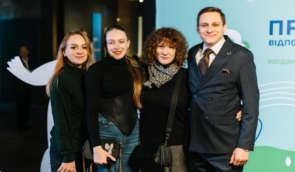Ukraine’s recovery policy must include Crimea and its residents — Alena Lunova in Rome
On 9 July 2025, on the eve of the Ukraine Recovery Conference (URC2025) in Rome, an event “Ukraine and Italy. Why does Crimea unite us?” took place. It focused on the situation in the temporarily occupied Crimea, the impact of the prolonged occupation on human rights, and the role of Crimea in the process of Ukraine’s recovery. The event was organised by the Italian Federation for Human Rights, the Human Rights Centre ZMINA, the International Partnership for Human Rights and Europa Radicale, with the support of the Crimean Platform Office.
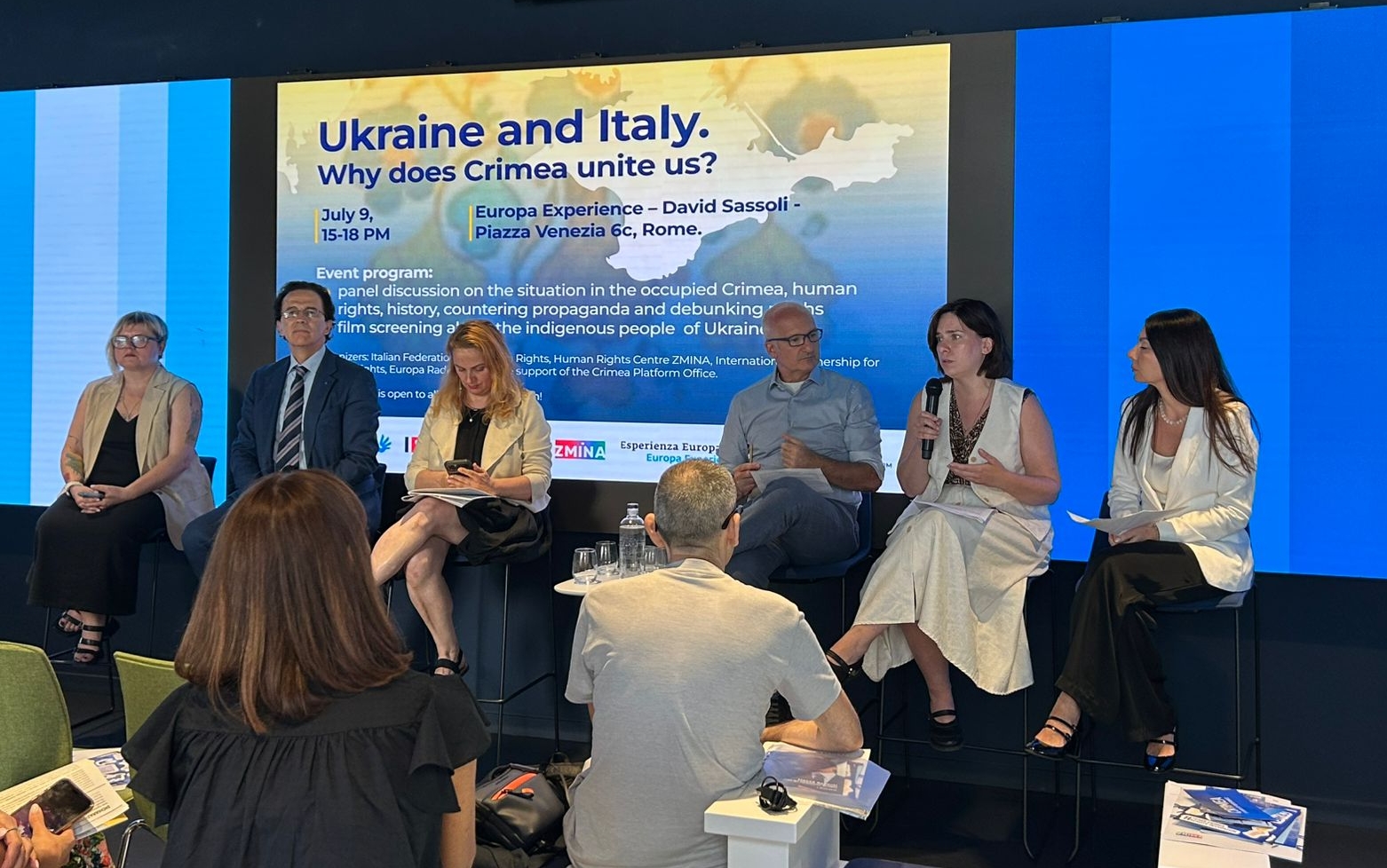
Welcoming speeches were delivered by Olha Kuryshko, the acting Permanent Representative of the President of Ukraine in the Autonomous Republic of Crimea, Antonio Stango, President of the Italian Federation for Human Rights (FIDU), and Roda Omido, a staff member of Europa Experience.
The discussion was attended by Olha Kuryshko, the Permanent Representative, Antonio Stango, President of the Italian Federation for Human Rights (FIDU) and mentor to political prisoner Amet Suleimanov, Eleonora Mongelli, Vice-President of the Italian Federation for Human Rights (FIDU), Alena Lunova, Advocacy Director of the Human Rights Centre ZMINA, Ihor Boni, Coordinator of the Europa Radicale initiative, and Svitlana Valko, Programme Manager of the International Partnership for Human Rights.
Participants discussed the challenges faced by residents of occupied Crimea and others affected by the war. The event also featured a screening of a film by Ukrainer about the history of Ukraine’s indigenous people, the Crimean Tatars. The film tells the story of how Russia is systematically erasing, rewriting and exploiting the history of the Crimean Tatars as a tool of propaganda.
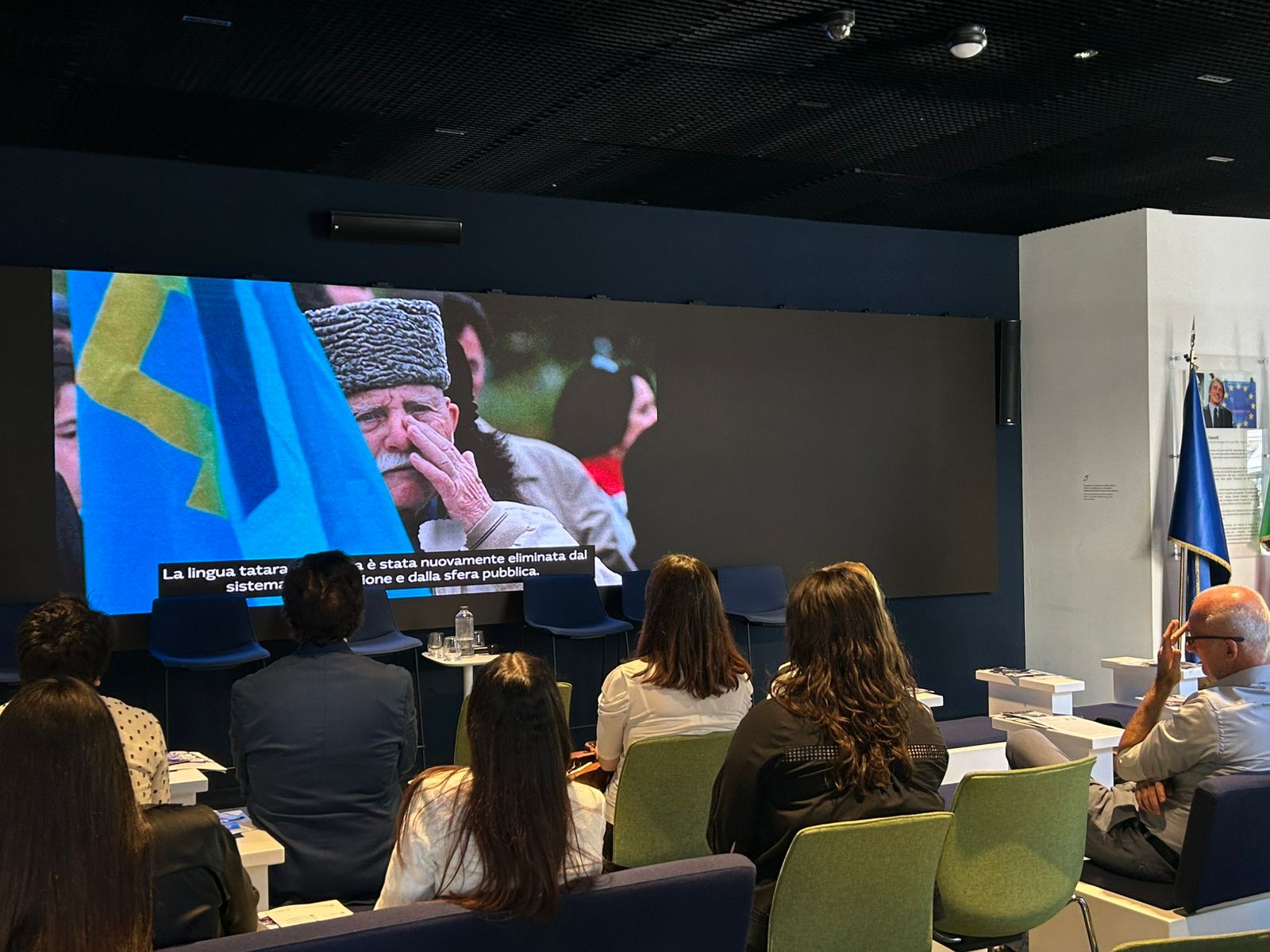
Alena Lunova, the Advocacy Director of the Human Rights Centre ZMINA, spoke at the event and began her speech with the words: “I am from Crimea, and I always try to talk about what I witnessed in Crimea before 2014 and after.“
Lunova emphasised the importance of eyewitness testimonies of the events of 2014 and the need to preserve the memory of the resistance and the consequences of the occupation: “Sometimes it seems that interest in Crimea is fading. And the further we move away from the events of the occupation of the peninsula, the easier it is for Russian propaganda to impose a different story on everyone — about referendums, the voluntary nature of the ‘joining’, and so on. But we, the people of Crimea, can testify to how everything happened. And we must continue to do so despite fatigue, indifference and the efforts of Russian propaganda to convince the world that there was no resistance.“
Lunova emphasised that despite the ongoing efforts of civil society, the state’s actions regarding the temporarily occupied territories remain unsystematic. This is particularly true of policies that often prioritise security objectives over human rights, sometimes without sufficient grounds or justification.
“We are having this conversation on the eve of the URC2025 conference, and tomorrow, most likely, you will not hear about Crimea or other occupied territories from the main stage. And this is not only about the Ukrainian state, but also about international partners who have been ignoring the voices of human rights organisations for years,” said Alena Lunova.
She emphasised that residents of the temporarily occupied territories are not only victims of aggression, but also a strategic resource for Ukraine’s recovery, and that recovery policy must take this into account.
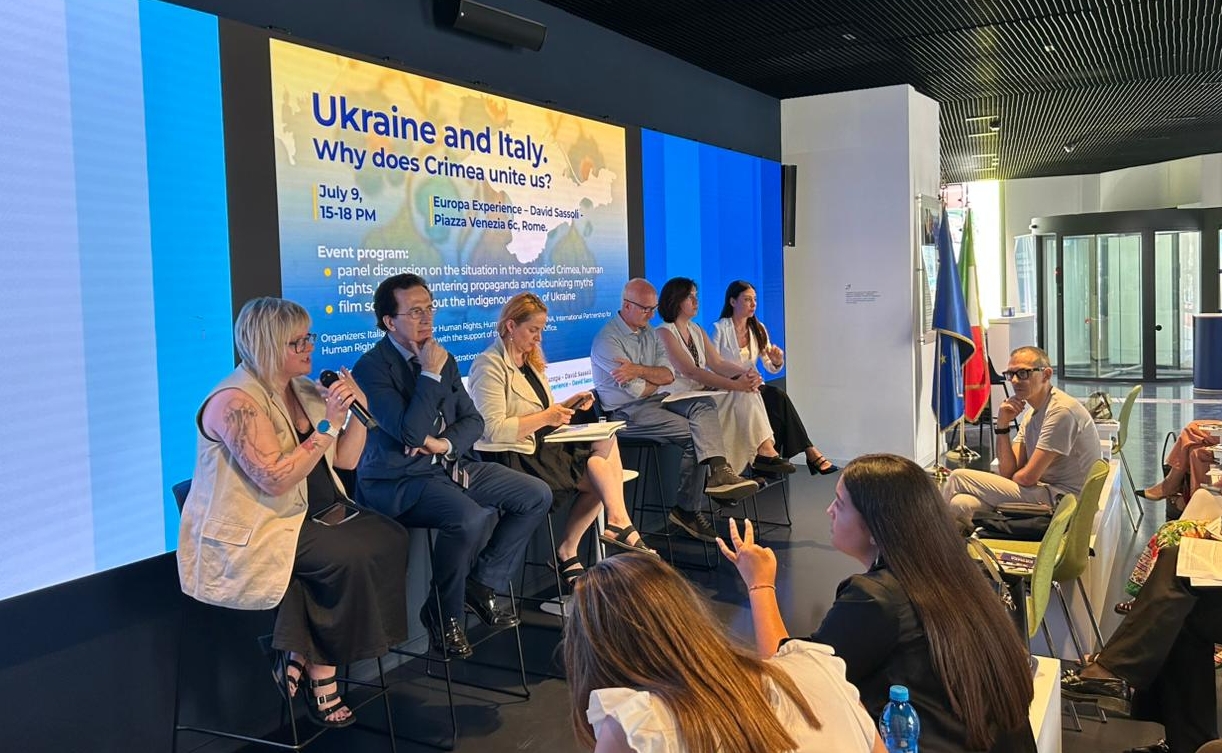
In her speech, Alena Lunova also outlined the key demands and steps that, according to Ukrainian human rights defenders, should become part of both Ukraine’s state policy and the strategy of its international partners. First and foremost, this concerns the need to integrate the needs of residents of the temporarily occupied territories into all areas of the country’s recovery, from infrastructure projects, housing policy and healthcare to education, the economy and psychosocial support.
“Real recovery is not only about rebuilding what has been destroyed, but also restoring what makes Ukraine whole: its people. This includes those who are currently living under occupation,” noted Lunova.
As a reminder, on the eve of URC2025, Ukrainian and international humanitarian and human rights organisations called on the Government of Ukraine and international partners to ensure that the needs and rights of residents of the temporarily occupied territories are included in recovery plans. You can read and support the joint statement at the link.
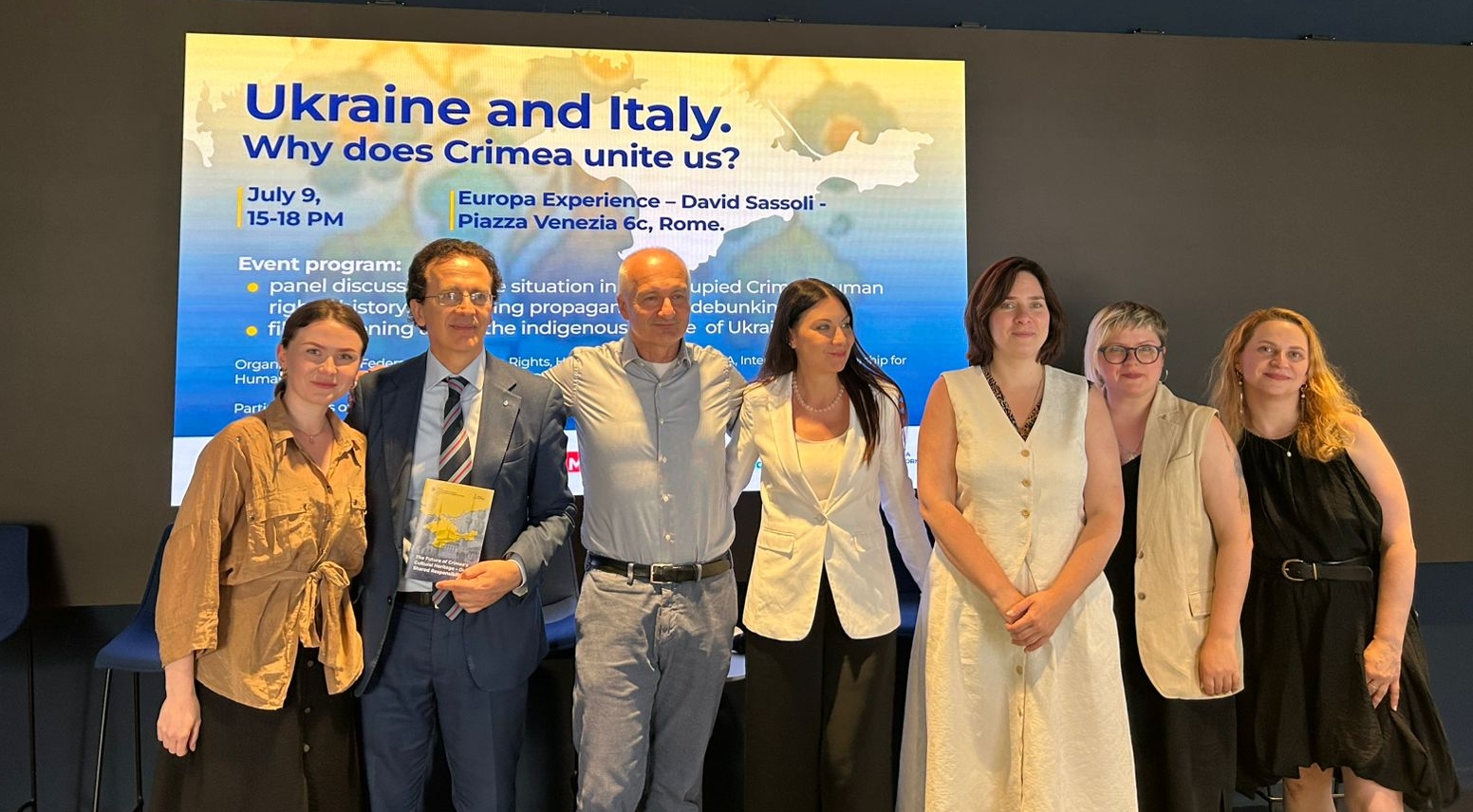
For reference: The URC2025 takes place in Rome on the 10th and 11th of July, 2025. It is the fourth Ukraine Recovery Conference, continuing the annual series of high-level political events dedicated to the swift recovery and long-term reconstruction of Ukraine since the beginning of Russia’s full-scale war of aggression against Ukraine.
The conference reflects the Lugano principles, including a “whole of society” approach to recovery through the meaningful participation of a broad range of stakeholders.
Photo credit: Mission of the President of Ukraine in the Autonomous Republic of Crimea
If you have found a spelling error, please, notify us by selecting that text and pressing Ctrl+Enter.




